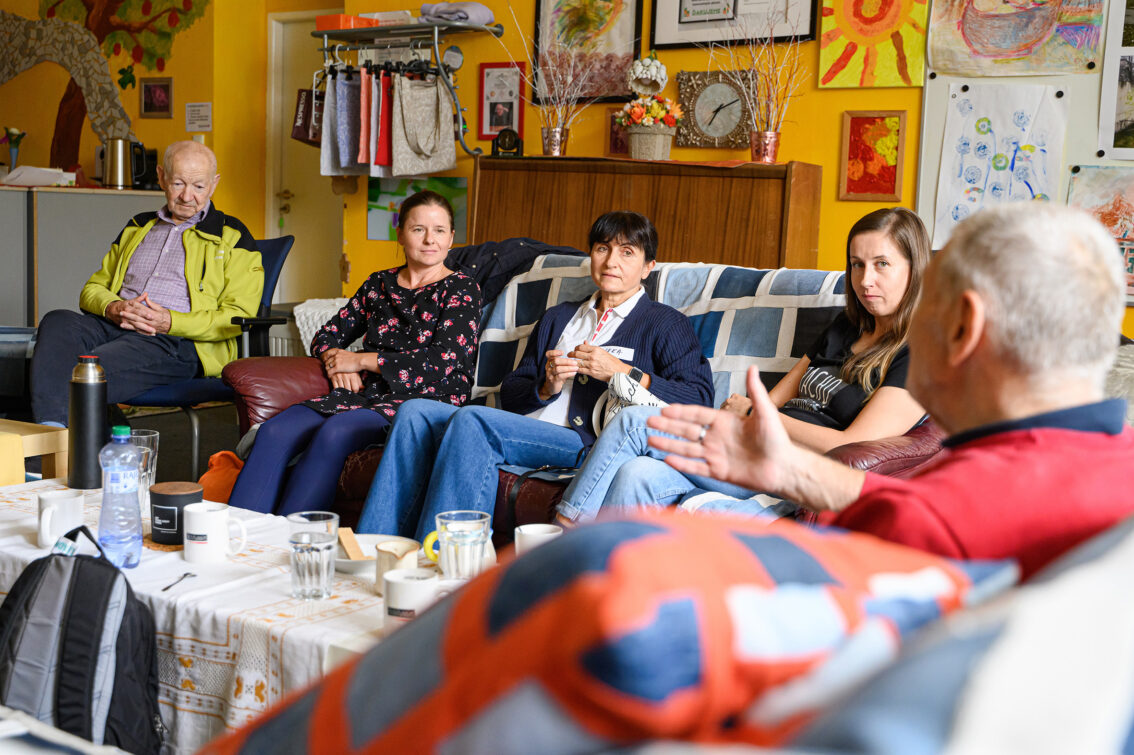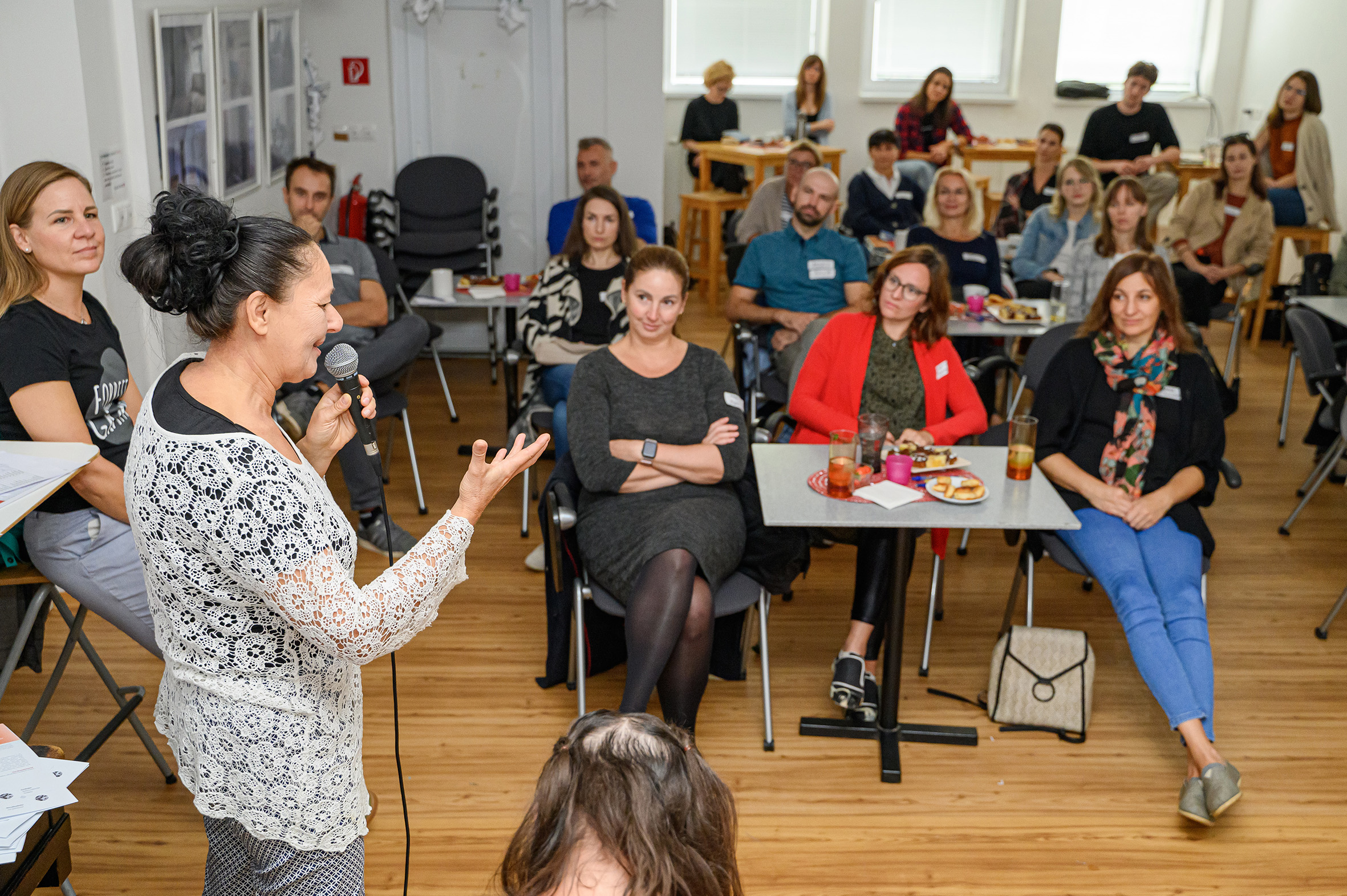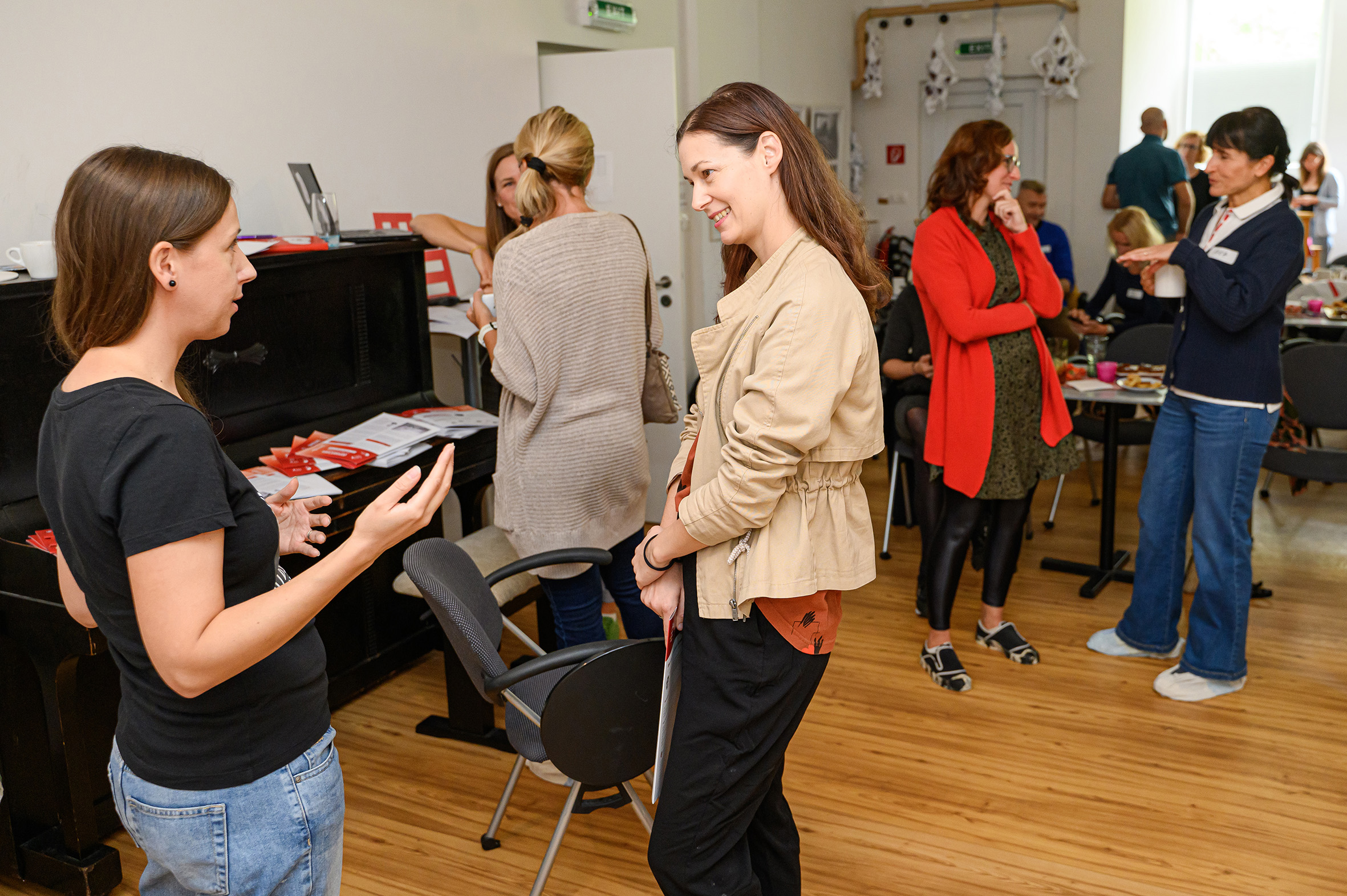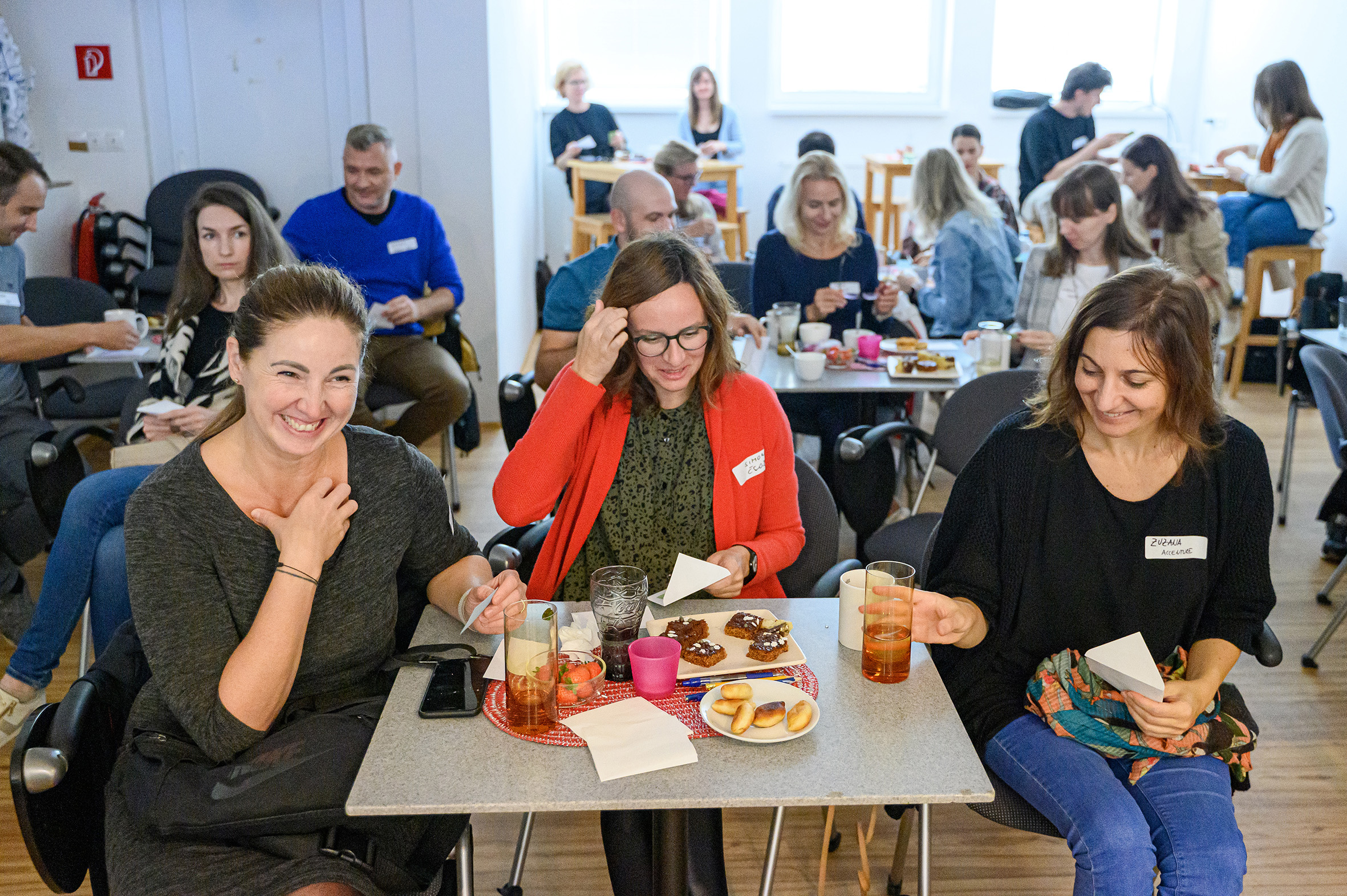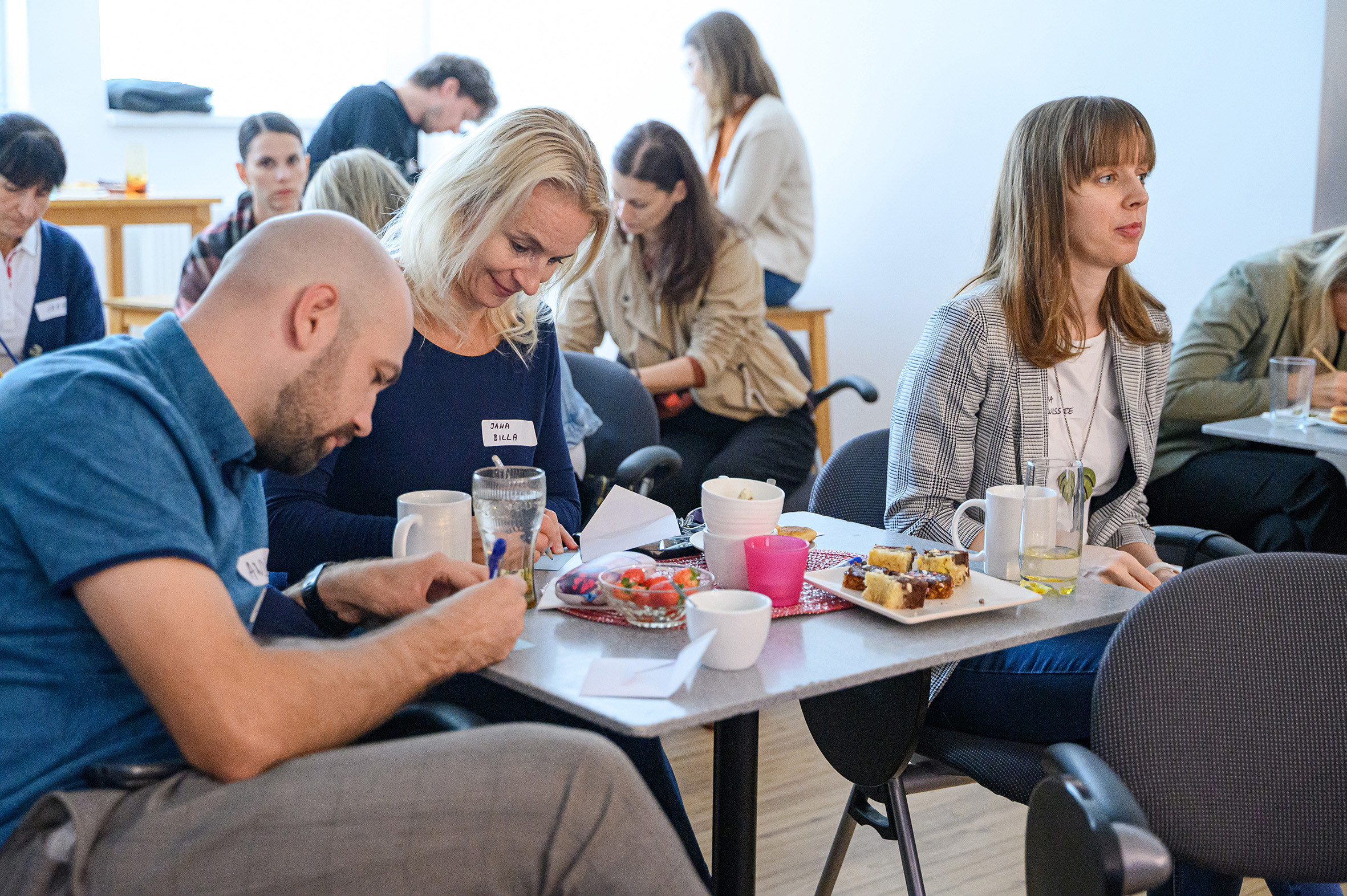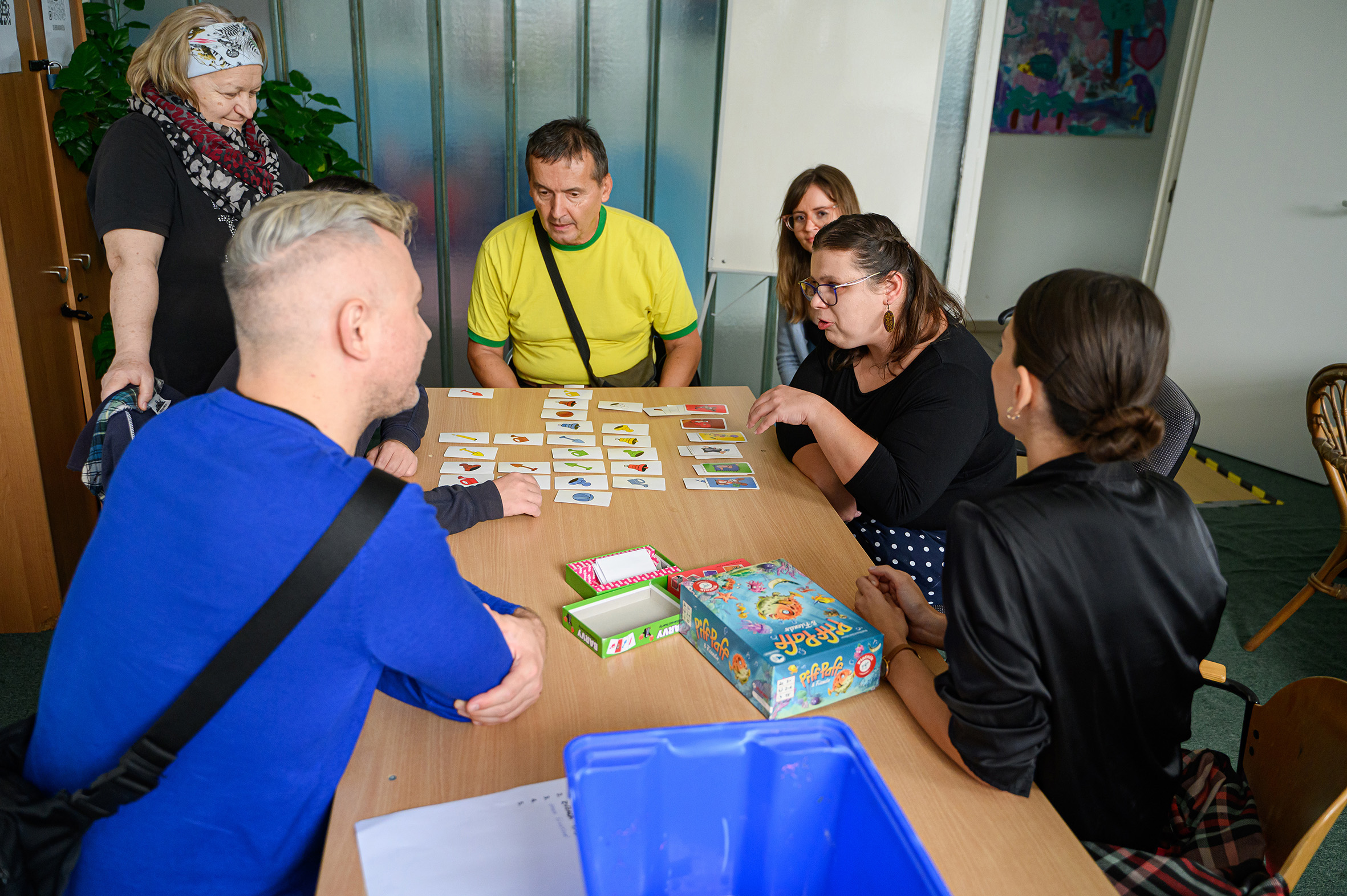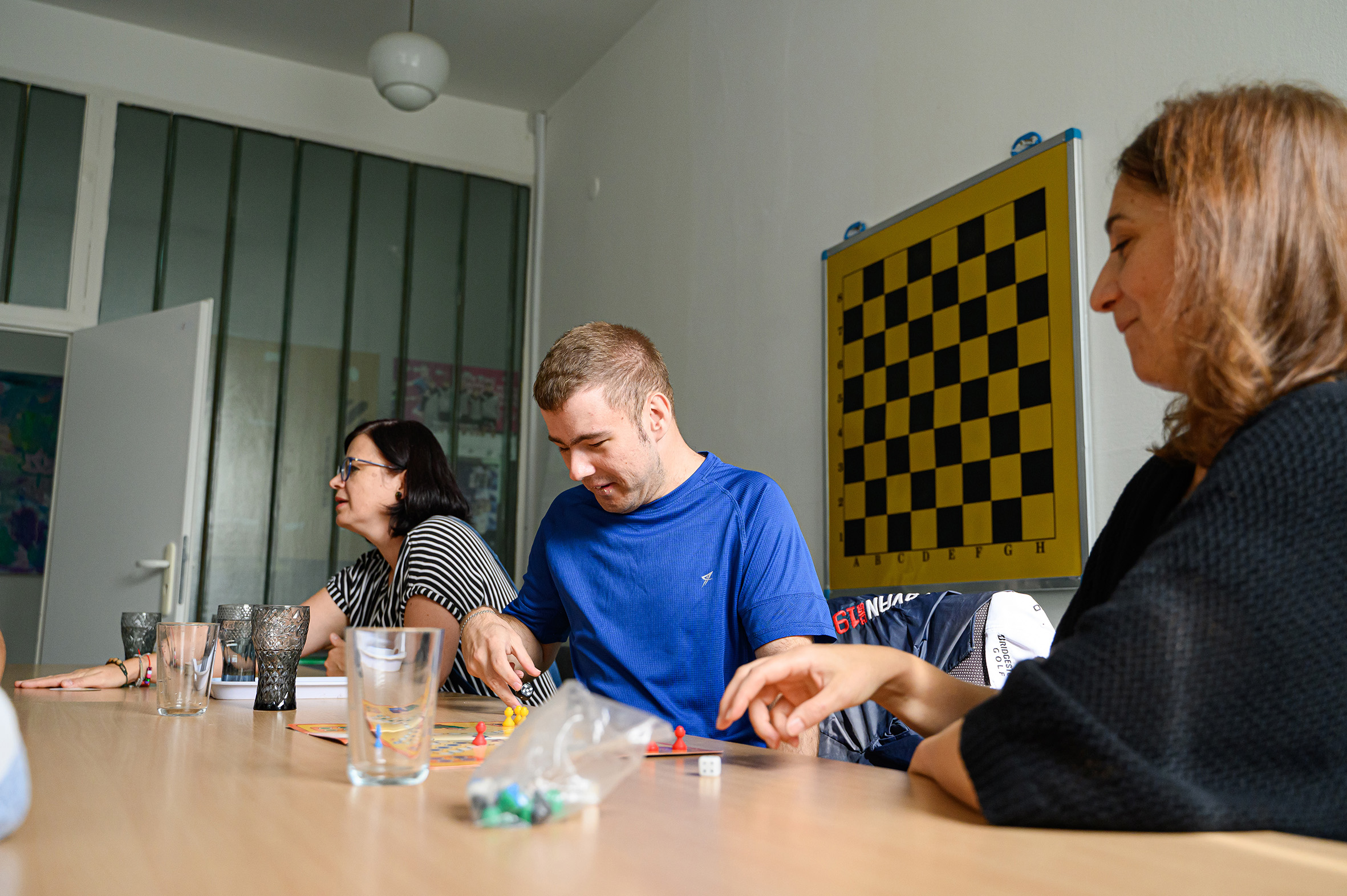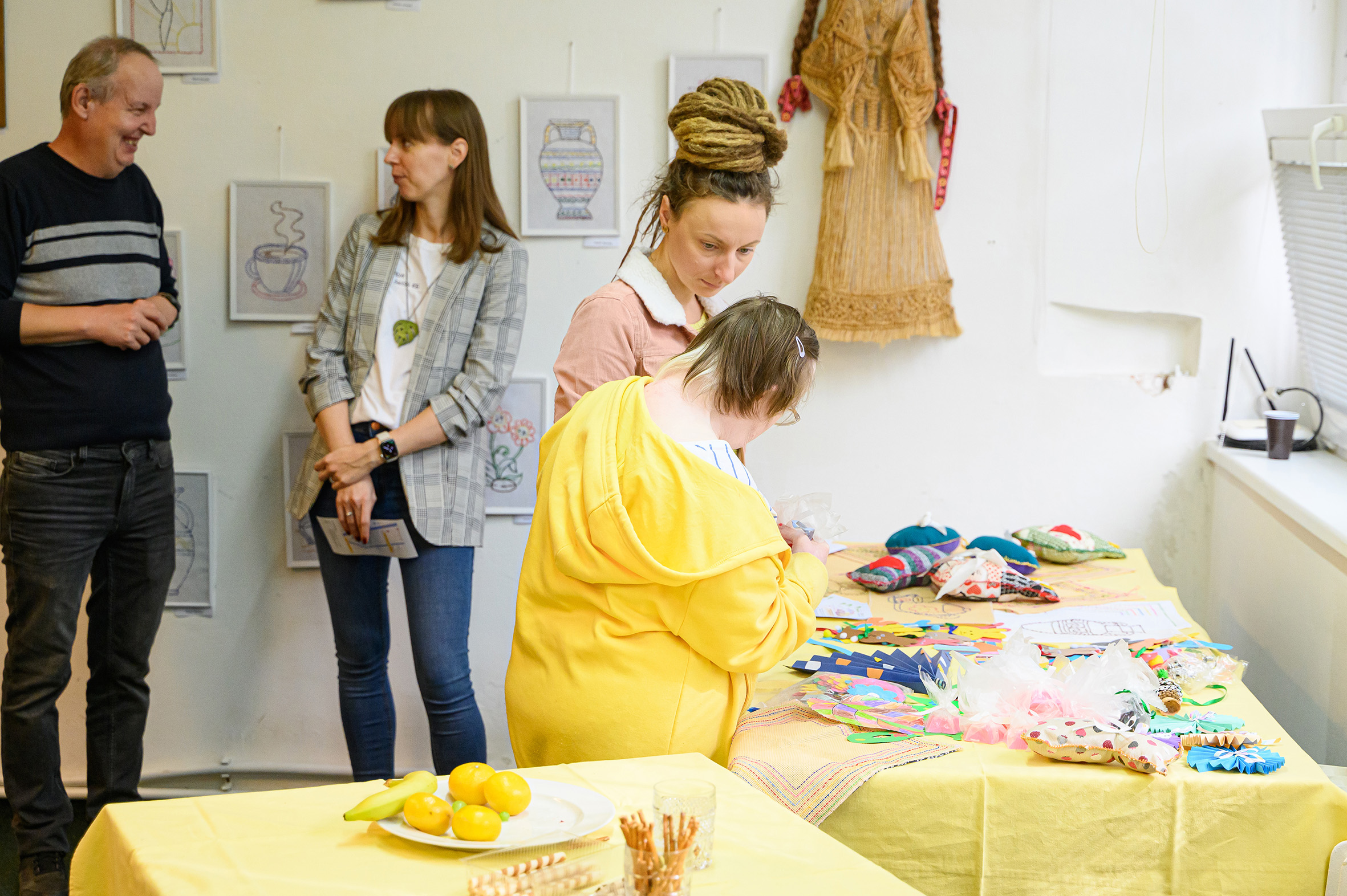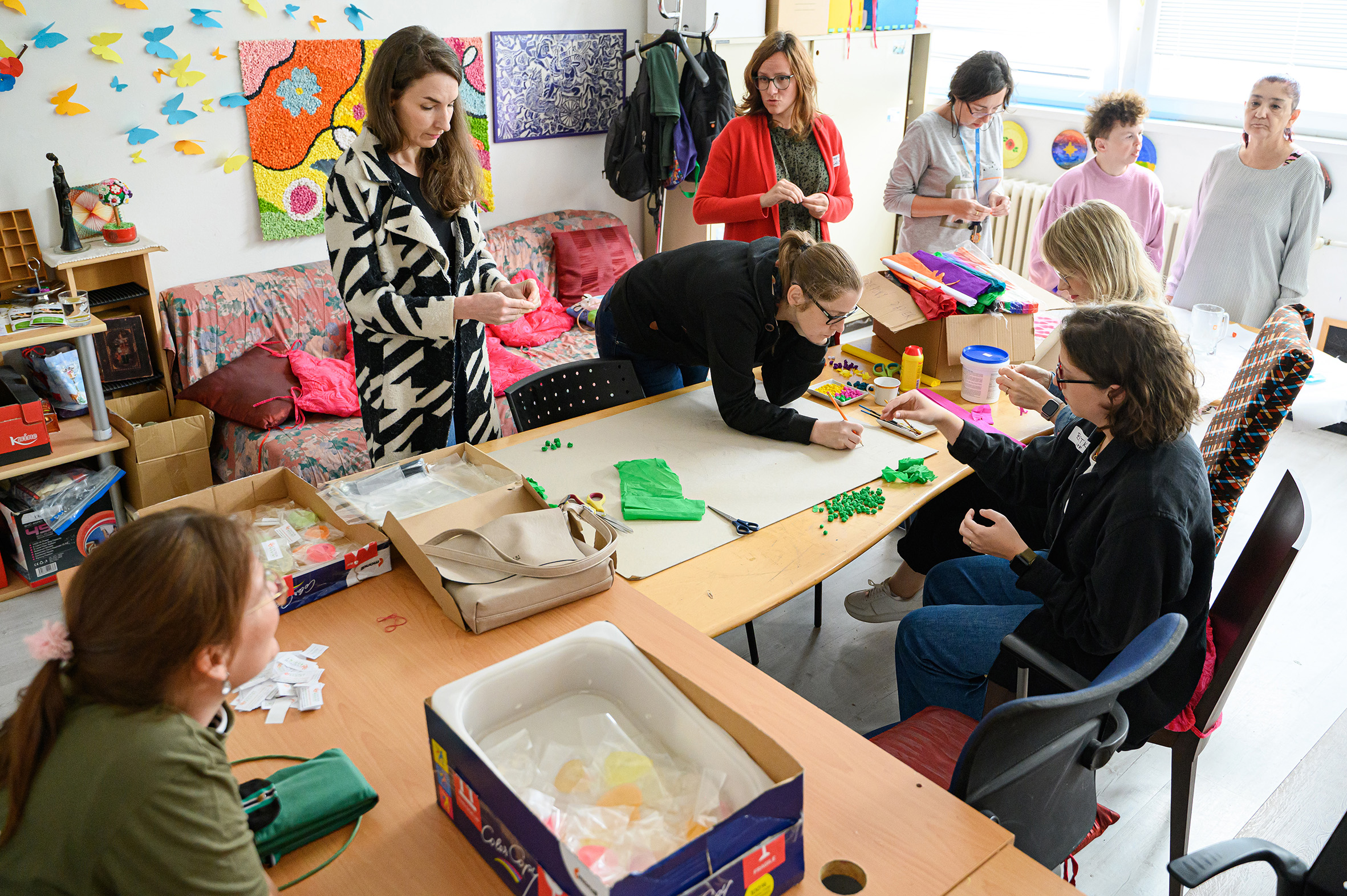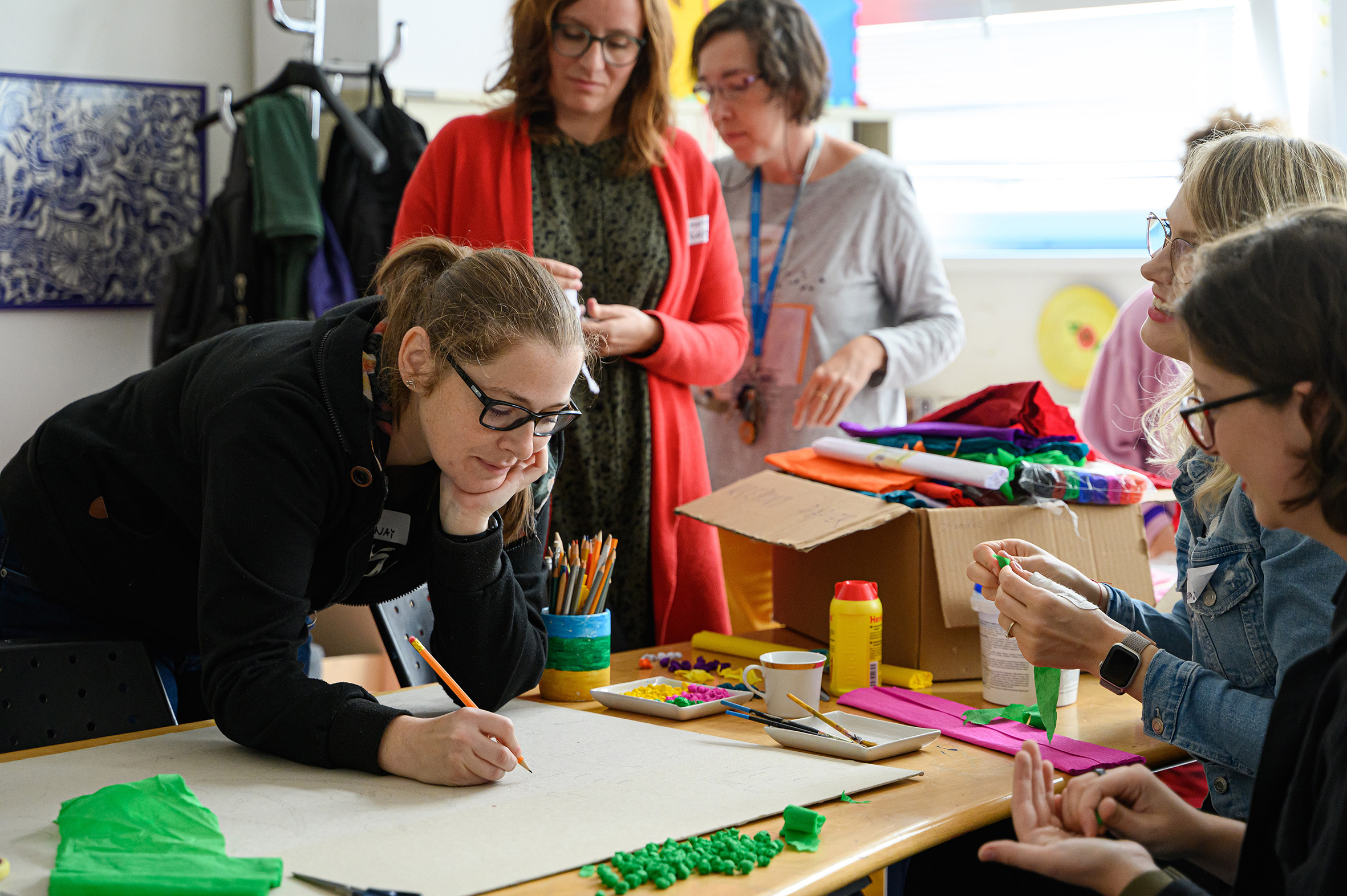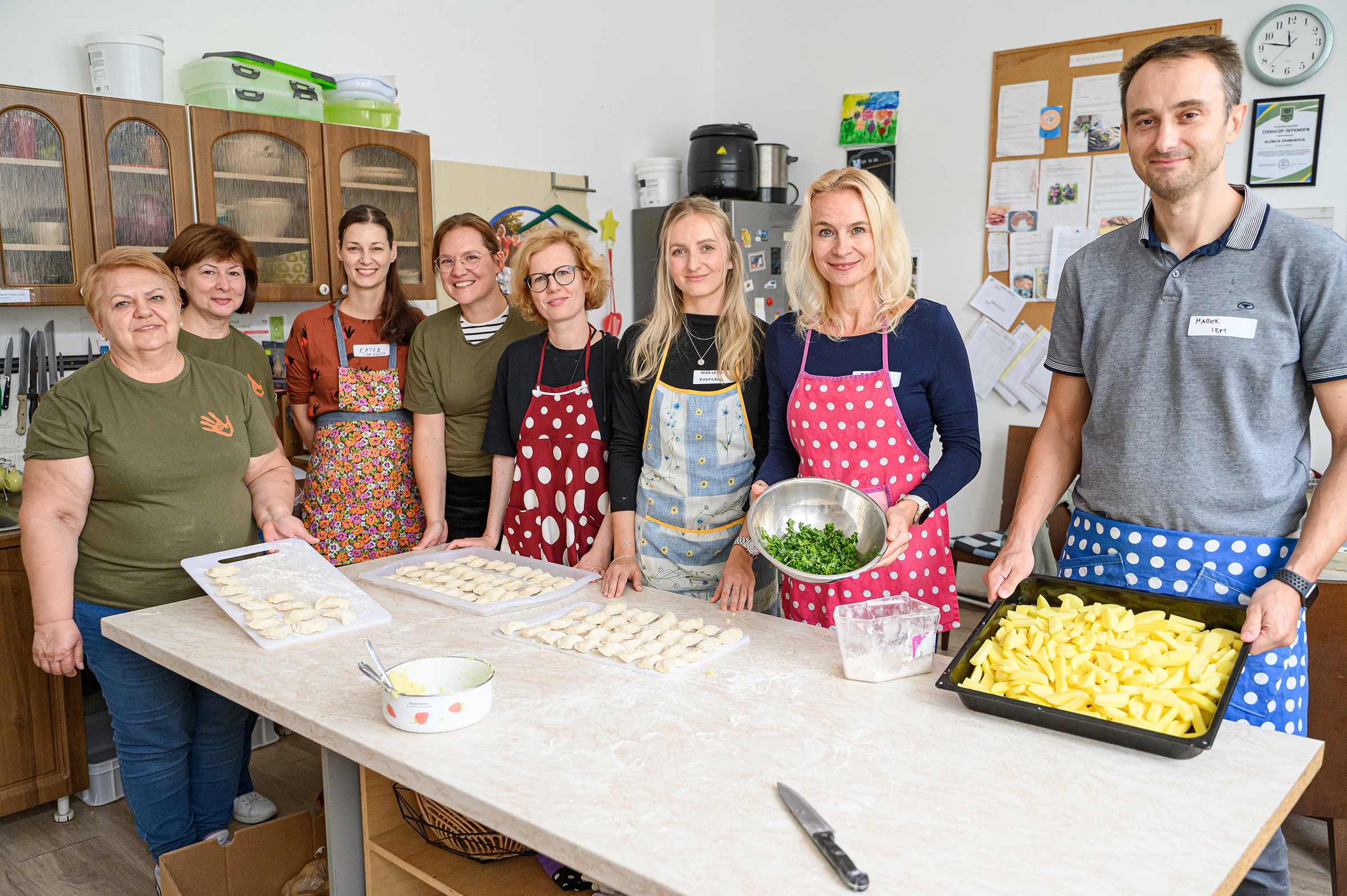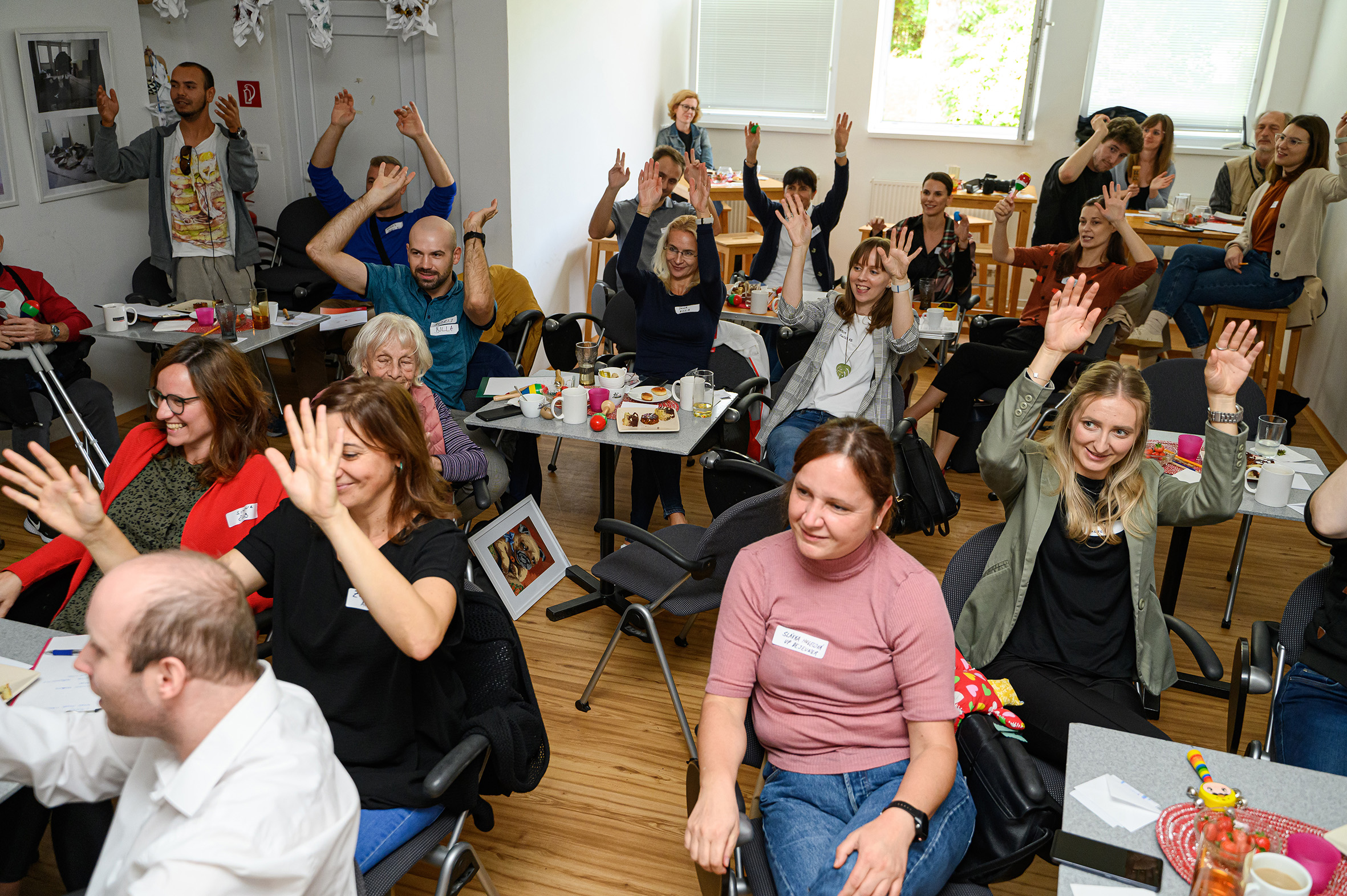Transformational Volunteering Can Change People for the Better, If They Step Out of Their Comfort Zone
There is no doubt that volunteering makes the world a better place. However, little is said about the transformative effects helping others has on us. We opened this topic at an unconventional meeting of the Companies to the Community working group at the Family Center in Dúbravka, Bratislava.
Volunteering That Connects Worlds
A dilapidated kindergarten building has been turned into the largest community center in Bratislava, offering a precious space for diverse communities. Since the beginning, the family center has also cooperated with company volunteers, and it is thanks to the connection between the non-profit and business worlds that they have been able to transform the center into what it is today. “We had volunteers coming to an activity in the garden one day, but it was raining outside. So, they sat in our ‘living room’ where they talked to various clients and people with disabilities, who came for their group activities. At the end of the day, they told us it was the best volunteering they had ever experienced,” said the center’s director, Alžbeta Šporerová, at the meeting.
We usually associate volunteering with simple activities such as painting a fence or working in the garden. Also the feedback from the biggest company volunteering event Our City shows that people are mostly pleased that they were able to spend time in the fresh air, have a pleasant day with their colleagues and do a good deed.
When the value of volunteering is focused on completing tasks, it is called transactional volunteering. It is one of the most common forms of volunteering in the world and, of course, it is much needed. However, Alžbeta Šporerová and her colleagues from the Family Centre showed us a different type of volunteering in practice – one that adds another dimension to the accomplishment of a task and the good deed.
What Is Transformational Volunteering?
The goal of transformational volunteering can be the same activity as in the case of transactional volunteering, for example, planting in the garden of a social services centre. However, it also involves developing and strengthening empathy by expanding our social bubbles. In this way, volunteering can lead to rethinking of beliefs, prejudices, values and perceptions of the world.
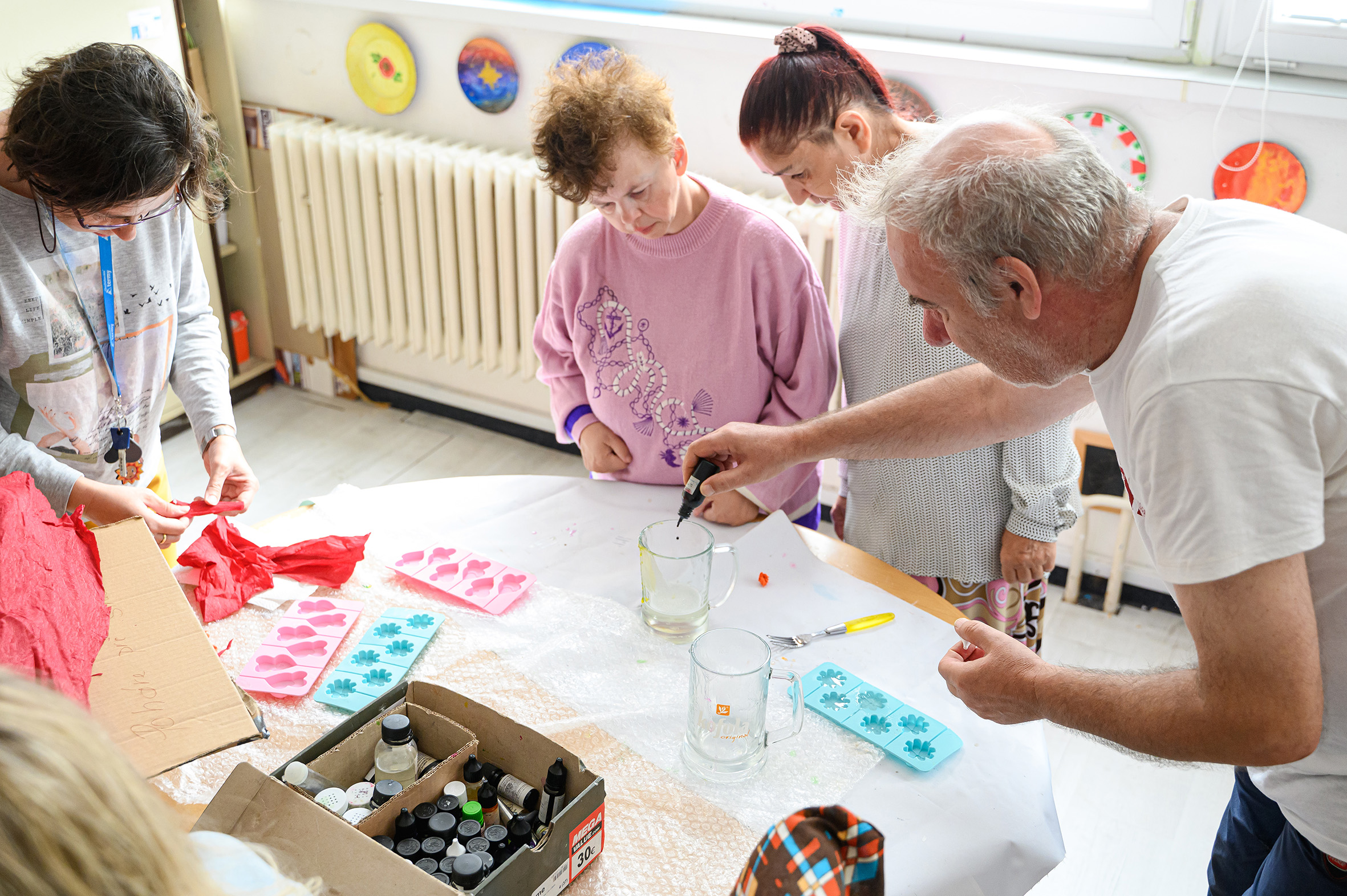
“Empathy is a very old program rooted deep in our brains. It is the power that allows us to empathize with the feelings of others and enables us to feel another’s pain as if it was our own. Moreover, it compels us to take action and help people who are suffering. It is thanks to empathy that we, as a species, have managed to survive,” explained Paulína Hrončeková from the Pontis Foundation at the meeting at the Family Centre.
She also presented an experiment by neuroscientist Lasan Harris from University College London, which shows that our empathy is activated only towards people who are from our group – our “bubble”. “From a survival DNA perspective, this is quite logical. We needed to keep our closest tribe alive to survive,” P. Hrončeková added. “So, the limits of our empathy are at the boarders of our social groups.”
How to Expand the Boarders of Our Group?
We can use the brain’s ability to develop neural networks through new experiences to develop empathy, through experimental learning.
Experimental learning consists of a cycle of four activities:
- experience – which forces us to step out of our comfort zone,
- reflection – the process of evaluating new stimuli based on experience and facing many internal questions that change our original views,
- understanding – occurs when we find answers to our internal questions, often overcoming prejudices, re-evaluating views and values,
- new insight – when the answers fit together and the unfamiliar becomes the familiar.
Experimental learning creates new pathways in the brain. Regular repetition pushes the boundaries not only of our knowledge, but also of our perception of the world around us. In this way, the boundaries of our social groups (bubbles) can also expand, with our empathy beginning to affect a wider group of people.
Volunteering in particular is an ideal tool for gaining the experiences necessary to develop empathy and brings many opportunities for experimental learning outside of the normal social group. When an organization explains to the volunteers why their work is important and how it will impact the lives of its clients, the experience can trigger processes of reflection, understanding and gaining new insights and contexts. In the same way, direct contact with people we do not normally have the opportunity to meet is also very powerful.
New Experiences Were Also Part of the Meeting
Participants from the Companies to the Community working group were able to experience the effects of transformational volunteering first-hand. They divided into groups and during the activities they spent time and talked with different clients of the Family Centre – women from Ukraine, seniors and people from the Rozsutec Social Services Home.
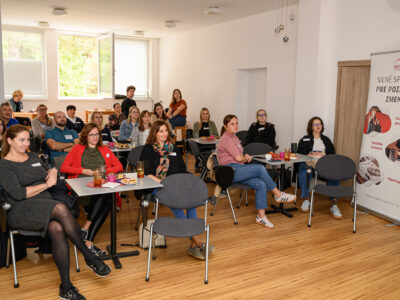
Did the involvement in the activities at the Family Centre have a transformative effect?
Marek Čambal, IBM: “This experience convinced me even more that corporate volunteering is very meaningful for local communities.”
Hana Čuháková, EY: “For me it was much more effective to meet people directly on-site, to see and talk to people who need our help. Thanks to the fact that we are touched by these meetings, we can communicate the need to help better.”
Miriam Cánik, CORWIN SK: “At the beginning, we felt a bit of apprehension and, above all, respect as we prepared to meet the center’s clients, since we had never experienced this type of meeting before. In the end these were very inspiring meetings that touched us, and we will certainly not forget them.”
Nikoleta Lörincová, Kaufland: “It was truly a transformational day. Especially in terms of emotions, which I am processing to this day. I think this topic is becoming more and more important, as we often consider volunteering an opportunity for our colleagues to relax through manual work that breaks them out of their usual routines. However, we should focus less on what it does for us and our colleagues and more on the beneficiaries. This is where I think transformational volunteering is crucial.”
Mária Opátová, Swiss Re: “Experiential volunteering is a great way to make people feel good about the work they have done and to bring about a more fundamental internal change. It was an intense experience, and I will draw inspiration for future activities from the information you all shared there. We will definitely think with the team about how to engage more with partner associations and use their experience to educate our staff to make the experience of the community days more profound.”
Juraj Ondrejčík, Slovenské elektrárne: “The active involvement of the clients of a specific facility in a volunteer event is a completely different experience than just coming, doing the necessary and leaving. My colleagues also perceive it positively when we are given a bit of attention, when we can experience the authenticity of the place. I gained the knowledge that the society still has hope in specific people and their actions, but also that people deserve a second chance, and that corporate volunteering can be done better by stronger engagement of the receiving and conveying an authentic experience.”
If you would like to experience this kind of volunteering for yourself, please contact us. We will be happy to help.




